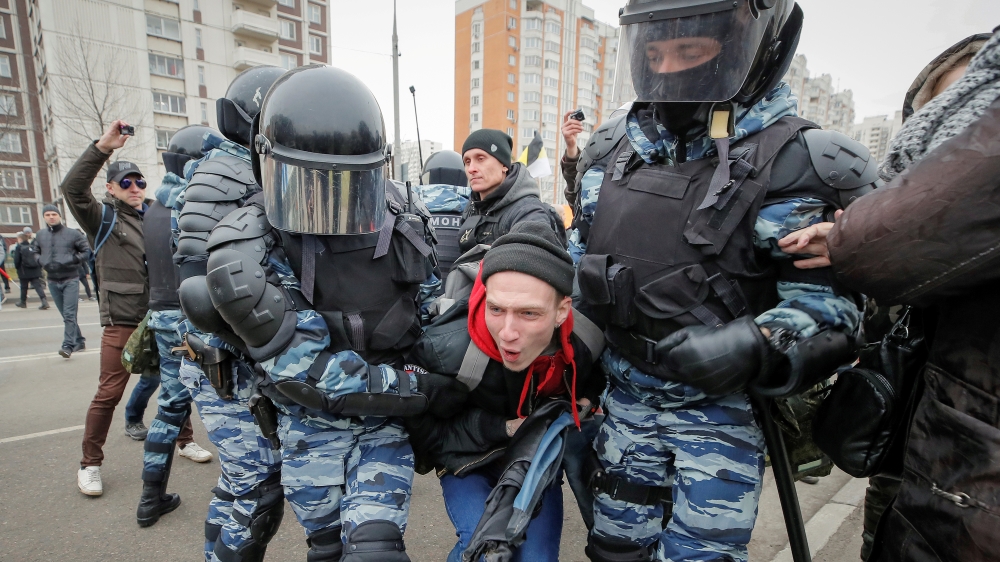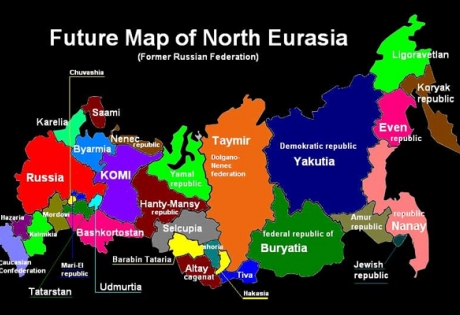Litwin
Diamond Member
- Thread starter
- #21
Diaries of the Last years of Mongol project Ulus of Juchi . Paid trolls from Olgino are suggesting that Islam take over Europe. but In reality Islam takes over Muscovy (ulus of Juchi). or just back roots (Muscovy was an Islamic "country" up to 19 century) ? comments?
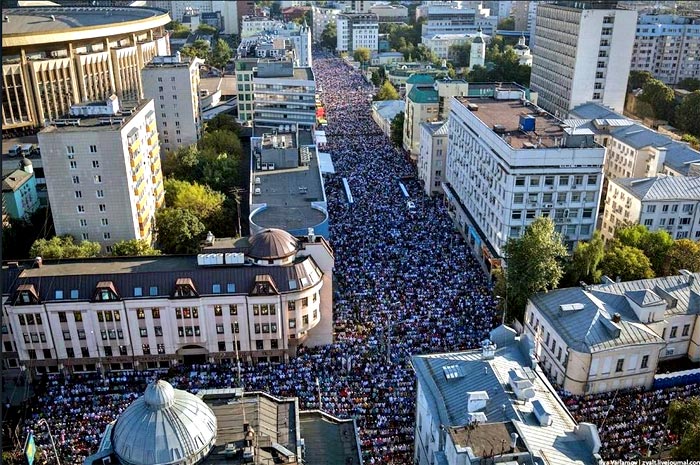

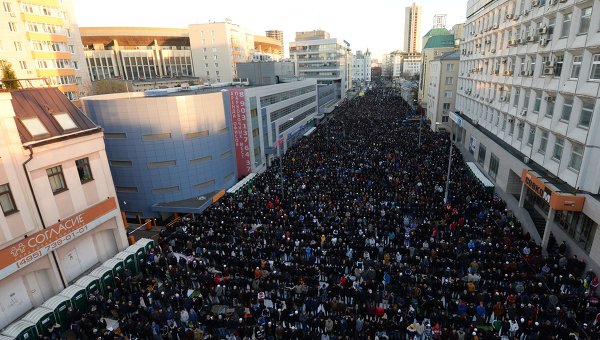
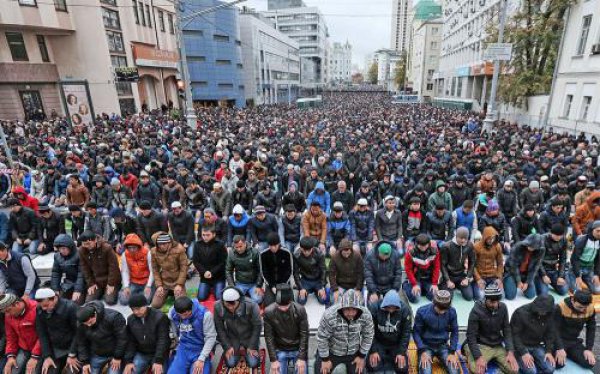
"
Kurban Bairam islamic event in Moscow"
No one says Putin would be a friend of Russian People, Russian State and Russian Nationality.
All Russian patriots are imprisoned, only non-Russians are in charge for important offices.
how do you know? Putler/kadyrov put in prison or killed all leader of Muscovite nationalists ...its a fact
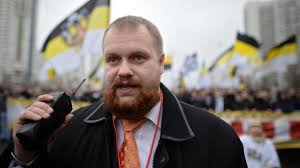
Only after all important offices in Russia will be hold by Orthodox Russians we can believe Putin working for Russia and Russians.It is a joke Putin allowed tens of millions Muslims in while indigenous Russians have less rights as them.
dont you know that Muscovy is an afro-asian empire?
in 2012 mostly The Jews
At Putin's side, an army of Jewish billionaires
today are mostly Muslims , Dags, Chechens etc
Putler knows as a national state Muscovy will be size of Poland , poor and unimportant
Russian Nationalist do not need Putin, a friend of anybody, but not Russians.
"How Islam Will Change Russia - Jamestown
Russia is becoming increasingly a Muslim country. Out of a total population of over 130 million ...., it counts about 15 million people of Muslim background—even if not all are believers and even fewer practice Islam. Given forthcoming demographic changes, by around 2050 Muslims will represent between one third (according to the most conservative estimates) and one half (according to the most ‘alarmist’ assessments) of the Russian population. This ‘Islamization’ of Russia—not in the sense of radical Islam but of a rising number of citizens self-referring to Islam—will impact both Russia’s domestic situation and its foreign policy options in the medium and long term. Islam’s growing importance in Russia will shape the future of the country in at least five main directions: the overall demographic balance of the country; the strategy of ‘normalizing’ the regions of the North Caucasus; Russia’s migration policy; Russia’s positioning on the international scene; and the transformation of Russian national identity.
* * *
Introduction
The Russian authorities’ incessant promotion of the Russian Orthodox Church, Orthodox symbols, and supposed “Orthodox cultural values” hides an understudied, contradictory trend: Russia is becoming increasingly a Muslim country. Russia counts about 15 million people (in a total population of over 146 million, including two million in annexed Crimea) of Muslim background, or about 11 percent of its population. All are not fervent believers, and even fewer practice Islam routinely. Moscow has the largest Muslim community in Europe: about one million Muslim residents and up to 1.5 million Muslim migrant workers. Given demographic changes, Muslims will represent between one third (the most conservative estimate) and one half (the most generous estimate) of the Russian population by around 2050.
Russia’s Muslims mostly belong to the country’s traditional ethnic minorities, many of whom are demographically on the rise. To this should be added about five million labor migrants who also belong to traditionally Muslim populations—from Uzbekistan, Tajikistan, Kyrgyzstan and Azerbaijan—and whose activities spread Islam well beyond the historically Muslim regions of Russia, the North Caucasus and the Volga-Urals. Widespread Internet and social media use characterizes Russian society; the upshot is that the Islamic digital world is increasingly available to Russian Muslim citizens, who are no longer isolated from global trends, whether feminine Islamic fashions or debates about halal food or radical online preaching. This “Islamization” of Russia—not in the sense of radical Islam but more of a “Muslimization,” that is, a rising number of citizens self-referring to Islam—will impact both Russia’s domestic situation and its foreign policy options in the medium and long term.
The Public Debate on Islam
The Official View
Russian authorities have elaborated three parallel discourses on Islam to appear both Islamophile and fighting radical Islam. [1]
First, they uphold the discourse—inherited from the Soviet regime—on “friendship between peoples”: Russia is a multinational and multi-religious country in which all the historical traditional religions are recognized as equal. [2] The Constitution’s preamble acknowledges Orthodox Christianity, Islam, Buddhism, and Judaism as inseparable parts of the country’s historical heritage—while elevating the “special contribution” of Orthodoxy to the country’s history and to the development of its spirituality and culture. [3] Vladimir Putin regularly receives high-level Muslim dignitaries, in particular leaders from the two main institutions that represent Islam in Russia—Talgat Tadjuddin for the Spiritual Board of Muslims of Russia based in Ufa, and Ravil Gaynutdin for the Muftis Council based in Moscow—and he has created an Interreligious Council of Traditional Religions. In 2009, then-president Dmitry Medvedev noted “Muslim foundations are making an important contribution to promoting peace in society, providing spiritual and moral education for many people, as well as fighting extremism and xenophobia.” [4]
Second, and in parallel, Russian authorities have crafted a narrative on radical Islam in which all non-conformist versions of Islam are subsumed under the label “Wahhabism.” [5] At the start of the second war in Chechnya in 1999, the Russian regime began denouncing supposed Wahhabi violence as a way of delegitimizing Chechen combatants; ever since, the regime has utilized the post-9/11 mantra “War on Terror” in order to lengthen the list of religious currents deemed Wahhabi and therefore banned from operating on Russian territory. [6] Several anti-extremist pieces of legislation have attempted to codify this policy, such as one banning the Hizb-ut Tahrir and the Tablighi Jamaat movements, which are often decried in the Russian media as Wahhabi despite sharing no theological doctrine with this Saudi current. [7] Non-conformist Islam, or non-traditional Islam, by this interpretation, is necessarily “foreign,” and not recognized by the Spiritual Boards. Russian authorities have therefore been cultivating the image of a regime that shows no pity toward “non-traditional” Muslims that they consider “radicals.” They tend to amalgamate three different phenomena: people promoting a literal reading of the Koran (Salafis), those calling for Islam to become a political ideology, and those inclined to terrorist violence for religious or other reasons.
Third, Russian authorities use the theme of Islam within the international arena to promote Moscow’s great power strategy. Russia presents itself as the defender of traditional “conservative” religions, that is, of both Christianity and Islam—with a special focus on the topic of the traditional, heterosexual family—in their opposition to the West’s supposed moral decay and its growing recognition of sexual minorities. This enables the Kremlin to cultivate its international relations with Muslim countries, while parading itself as uncompromising in its fight against Islamist violence. In his speech of 2009 mentioned above, Medvedev announced that, owing to its large Muslim population, “Russia does not need to seek friendship with the Muslim world: Our country is an organic part of this world.” [8]
On the domestic scene, public debates around Islam are less subtle and compartmented than those of the central state institutions. Many famous politicians, such as Vladimir Zhirinovsky or current deputy prime minister and former leader of the Rodina (Homeland) party Dmitry Rogozin, have been in the spotlight for their Islamophobic remarks. Drawing connections between labor migrants and the spread of Islamic radicalism are mainstream in the Russian media, and even at the level of institutions such as the Federal Service of Migration and law enforcement agencies. [9] Yet, at the regional and local level, relationships to Islam vary considerably. In traditionally Muslim regions, references to Islam are an integral part of public life, and all local leaders attempt to position themselves as supporters of traditional Islam. However, in regions where Islam is only visible through the activities of migrants, tensions are noticeable and on the rise. As in Europe, requests made by Muslim communities to build new mosques are often not well received by local populations, and the authorities remain cautious about any authorizations they grant. [10]
The Popular View
At the popular level, while there is widespread xenophobia against labor migrants, [11] hate crimes against Muslims are less common. Obviously, it can sometimes be difficult to dissociate xenophobia of an ethnic nature from xenophobia with religious motives, as migrants mostly come from nominally Muslim populations. Ethnic violence against people with Muslim backgrounds accounts for a considerable portion of all ethnic violence data collected by the Moscow-based SOVA Center, ranging from 30 to 60 percent depending on the year. [12]
However, the percentage of admitted religious violence—in other words, when Islamophobic comments made by the attackers have been reported—is small. Indeed, few cases of explicit violence against people of Muslim background—or those considered as such by the attackers—have been documented, almost all in Moscow. Between 2013 and 2015, SOVA reported for instance three attacks on women wearing traditional Islamic clothes, and one against a man as he left a Moscow mosque. Violence can also be committed by law enforcement agencies and private security services: in 2013 police officers attacked a group of 30 men of different nationalities sitting in a halal café, and in 2015 a man wanting to pray in a commercial mall was beaten up by a private security guard. [13]
Concerning violence against Muslim architectural symbols, cemeteries or prayer rooms, the numbers of hate acts are higher. Between 2010 and mid-2016, SOVA listed 58 such acts of violence, a number that increases year upon year. Indeed, in 2011, 2013 and 2014 desecration of Islamic symbols topped the list ahead of Christian or Jewish ones. This kind of violence has been perpetrated most in the Novosibirsk region, where in 2011 a series of attacks against Muslim cemeteries was carried out, followed by Orenburg and then Moscow. This kind of violence is often committed by skinhead groups, who usually destroy Islamic symbols and paint Nazi swastikas, Orthodox crosses, or representations of pigs on Muslim graves. [14]
r.
"
How Islam Will Change Russia - Jamestown
